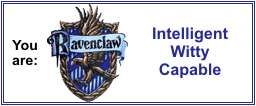Montaigne Essays
PHILIPPE DESAN
Globe and Mail
October 4, 2008
In 1580, Michel de Montaigne published in Bordeaux a book made unique by its title, Essais — literally "attempts" — and a literary genre was born. Over 20 years, Montaigne would rewrite and republish it several times, up until his death.
The Essays resemble a patchwork of personal reflections that nonetheless all tend toward a single goal: to live better in the present and to prepare for death.
These considerations, or essays, offer a point of departure for the modern reader's own assessments. In brief, one does not read Montaigne, one practises Montaigne. How does one systematize the thought of an author who didn't claim to write anything other than essays bound never quite to succeed?
The very form of the essay presupposes its inevitable failure, for otherwise it would no longer be an essay. Modern thinkers create systems, not essays. Yet Montaigne did elaborate a philosophy of life without precepts, mottos or systems. His thought claims to be amorphous or, better, multisided (which hardly means powerless).
Whereas Descartes and all of Western thought, from the 17th century on, sought to develop philosophies of content, Montaigne, on the contrary, was at pains to think the form itself, or rather many different forms of thought, knowledge and man. For him, these forms can only be apprehended in their relation to other thoughts, other men and other possible worlds (Christopher Columbus had just discovered a New World).
Montaigne's true originality is precisely his fleeting attempt to think of form as an organizing model of all knowledge. All is form — or rather forms — since diversity is inherent to the human condition.
Variety is the very motor of humanity and its history: From the Ancients' writings to the "Cannibals" of the New World, all of us are witnesses to the multiplicity of human thought, customs and practices.
From this observation, Montaigne postulates that "each man bears the entire form of man's estate." He strives to identify difference and prefers to conceive of the human condition in terms of its diversity, from which he will develop the principle of distingo: To understand one's self is also to understand the other (a finding we should perhaps take seriously, today more than ever).
Starting from a materialist assumption, Montaigne realized that the body is the foundation for all knowledge, and the mind is inseparable from the body: "as is seen in the movement of the planets, wherein, since our mind cannot reach it nor imagine its natural course, we lend them, on our own part, material, gross, physical springs."
In this crucial moment — one that defines "modernity" — knowledge thus depends on both the experiences of the body and the conceptualizations of the mind. Similar to the oscillations of the world and the universe, the "body and mind are in perpetual motion and action."
All knowledge is relative insofar as it depends on bodily experiences that will sometimes adapt to the mind, and other times dominate it. The mind and the body both deform and reveal what Montaigne calls an inner "monstrosity" (historically visible during the religious wars of his time), but this is a monstrosity that Montaigne deems worthy of consideration in his understanding of human action where mind and body go as a pair.
As he puts it: "My mind will not budge unless my legs move it." All ideas require some kind of action. The mind may then explore the world in all its shapes and forms.
This journey through the meanderings of thought — a thought that can only be understood in its relation to other thoughts — leads Montaigne into an analysis of himself, which he calls "introspection."
The Essays analyze what can be broadly defined as human nature, the endless process by which man tries to impose himself and his opinions upon others through the production of laws, policies or philosophies.
For Montaigne, this recurring battle for what man calls "truth" needs to be put into historical perspective, because, as he puts it: "Our truth of nowadays is not what is, but what others can be convinced of."
This is why Montaigne's motto is no more than a question: "What do I know?"
It's a question that always needs to be asked, even when others give us ready answers.
In summary, one could argue that reading Montaigne today teaches us that the angle of vision defines the world we see, or, as Montaigne wrote: "What matters is not merely that we see the thing, but how we see it."
Philippe Desan is Howard L. Willett Professor of French and History of Culture at the University of Chicago, the author of four books on Montaigne and a specialist in the Renaissance.
Subscribe to:
Post Comments (Atom)









2 comments:
I read a few essays by Montaigne. Very interesting article. Thank you for including it!
I've been posting the Globe and Mail series 50 Greatest Books since January. G&M are doing one greatest book per week for 50 weeks this year.
Post a Comment